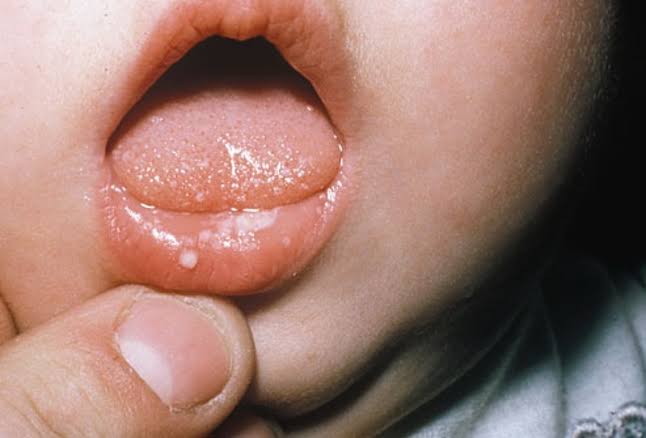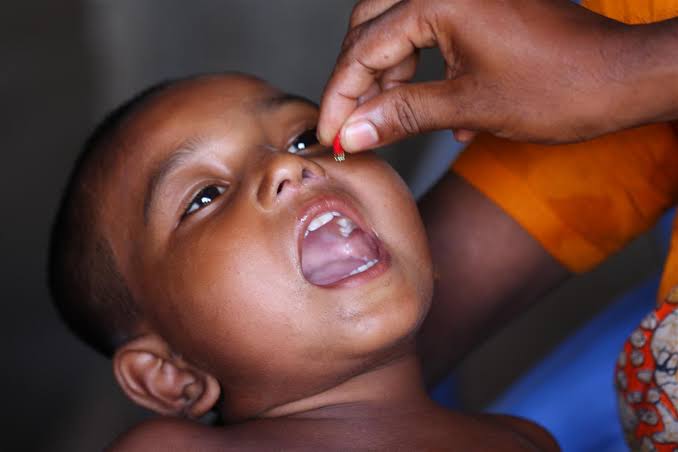Infectious disease in Child
Infectious disease in child is the disease resulted from the entry and multiplication of infectious agent in the body of human being. The infectious agent could be a virus or a bacteria or a parasite.
Common viral infectious diseases in pediatric age group are Chicken Pox, Measles, Mumps, Rubella, Viral Hep- atitis, Influenza and Herpes Zoster infection. Common Bacterial infectious diseases in pediatric age group are: Diphtheria, Tetanus, Typhoid, Cholera, Meningitis, Dengue Fever, Leptospiro- sis and bacterial infections involving respiratory and gastrointestinal tract. Infectious diseases caused by parasites are- Amebiasis, Worm Infestations, Malaria and Giardiasis.

Infectious disease in Child
Communicable Disease in child
It is the disease capable of being transmitted directly or indirectly from one person to another person. All above mentioned diseases are communicable diseases. Mode of transmission depends upon the type of infectious diseases and the organs involved by the diseases. Incubation Period It is the period between the entry of the infectious agent and the actual appearance of the symptoms of the disease. Incubation period varies from disease to disease.
Epidemic of the Disease
It is the outbreak of the disease inparticular area. Large number of cases are detected during short span of time. During the epidemic of viral disease like measles, chicken pox and mumps children have the increased risk of getting the disease. Incidence of these diseases in adults is low because immunity developed due to occurrences of these diseases in past, is almost for life time. During epidemic of viral or bacterial diseases the possibility of the epidemic disease should always be kept mind while examining all pediatric patients. This helps in detecting the disease at an early stage.
PREVENTION OF INFECTIOUS DISEASES IN CHILD
This is very important aspect of the pediatric practice. In spite of good man agement, the mortality and morbidity in some of the infectious diseases is quite high.
Levels of Prevention for Infectious disease in child
Importance and priority of all 3 levels of prevention is suggested by the area allotted to each level of prevention.
Disability Limitation Rehabilitation – Tertiary Prevention
Early Detection & Treatment of Disease- Secondary Prevention
Health Promotion Specific Protection – Primary Prevention.
1. Health Promotion:
This means improving the social and environ Primary Prevention mental conditions, that includes
a. Providing nutritious food to the children
b. Proper planning of housing colony
c. Supply of safe drinking water
d. Proper drainage system
e. Prevention of industrial pollu tion like air pollution, sound pollution
f. Uplifting the moral of the so ciety
g. Clean India campaign
h. Health education
Civic body is expected to provide most of these things. At individual level, one can contribute his mite for health promotion; for example disposal of garbage at allotted place. It appears a small and easy thing but if it is followed by all members of the housing colony, it will certainly help in preventing the spread of infectious diseases.
2. Specific Protection:
Immunization of children is the most important thing for specific pro tection from the disease. The role of General Practitioner is important because he is in touch with many families and he can explain the parent regarding the importance of immunization.
Secondary Prevention of infectious disease in child
Early detection and treatment of Infectious disease in child
This helps in reducing mortality and morbidity due to the disease. Skill and sincerity of the General Practitioner is important for secondary prevention of the disease.
Tertiary Prevention
1. Disability limitation: Once the disease is set in, proper line of treatment can certainly help in disability limitation.
2. Rehabilitation: This is handled by medical social workers and various social organizations. A General Practitioner can guide parents to such organization for rehabilitation of their child. For example- in Poliomyelitis, after the acute stage the child should be guided to proper institute for getting further attention to the affected limb.
Role of General Practitioner in Prevention of Infectious Diseases in child
Since the General Practitioner is in touch with many families, he with the assistance of civic body, pediatric consultants and social organizations can play key role in preventing infectious diseases. Immunization and early detection and treatment of the disease can be effectively handled by the General Practitioner.
There are many misconceptions about the viral infectious diseases like mea sles, infective hepatitis, chicken pox and mumps. The diseases are considered as sin of the God and allopathic treatment is not preferred by even some of the well – educated families. This increases mortality and morbid ity of the disease. Since the General Practitioner is in close contact with the parents of the child he can certainly play an important role in correcting the misconceptions about the disease.






